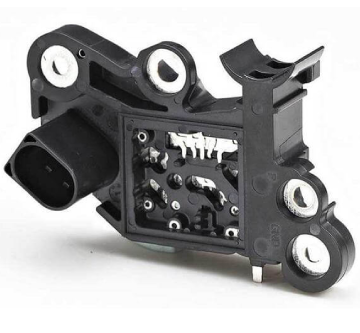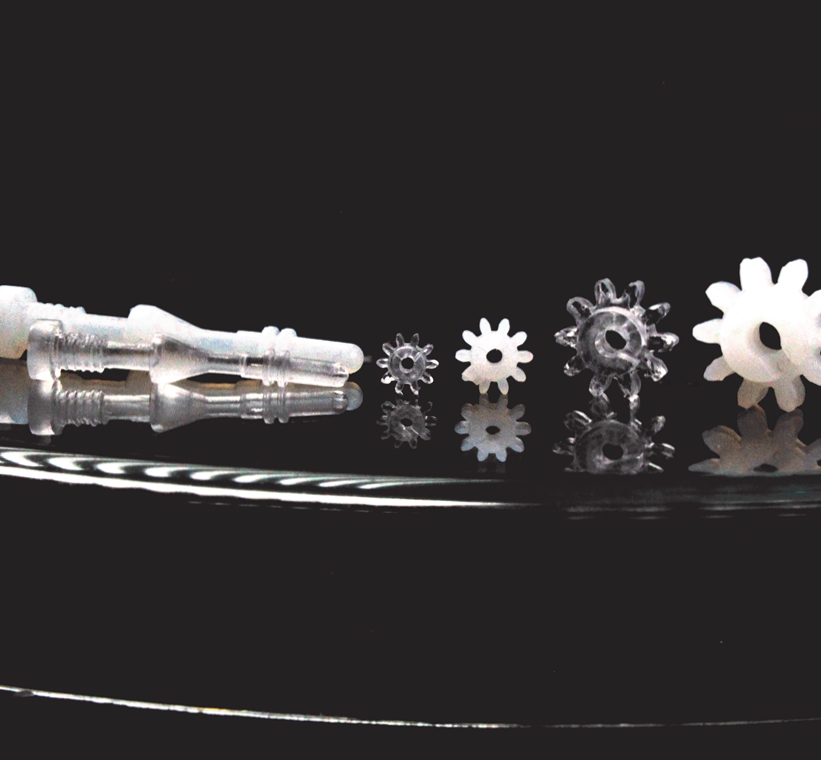Precision injection molding involves high-pressure injection of molten thermoplastic into a mold cavity. It allows for high production and consistent manufacturing, but cracking is a serious issue. It can sometimes occur in the molded parts and exhibit fractures under normal stresses because of internal weaknesses in the material. Cracking poses issues for plastic molded part integrity, aesthetics, functionality, and even safety. Therefore, manufacturers must carefully identify and address the underlying causes of cracking to ensure optimal performance and quality.

The Reasons Why the Molded Parts Crack
There are many potential reasons why cracking may occur in molded plastic parts. The machine, mold, material selection, and processing can all contribute to cracking if not properly handled.
Machine
A precision injection molding machine with improper plasticizing capacity can cause issues. If the capacity is too small, the plasticizing unit will not fully mix the plastic resin consistently. This can result in cracking. On the other hand, an oversized machine can cause thermal degradation of the materials.
Mold
Undercuts or parting line burrs in the mold can concentrate stresses. Improper ejector pin placement or ejector design may also cause cracking issues in the molded parts.
Material
Using an excessive percentage of reclaimed plastic materials or materials with high moisture content can introduce weaknesses and lead to cracking.
Molding Operation
Shortening the cooling cycle or using excess holding pressure during high-precision plastic injection molding can induce stresses that may cause cracking over time once the part is in use.

How to Avoid Cracking in Custom Plastic Injection Molding
Ensuring quality custom molded parts that are free of cracking is essential. By controlling various key aspects during the precision injection molding process, you can prevent many issues, including cracking. Here are some recommendations:
Check and Remove the Burrs Before Injection
Molds should be thoroughly inspected for any cracks, imperfections, or residual burrs leftover from previous runs that could compromise parts. Burrs as small as a few thousandths of an inch can concentrate stresses and act as failure initiation points. Make sure to carefully deburr all mold components.
Set Enough Knockout Pins to Maintain Even Stress
An appropriate number and configuration of knockout pins are necessary to safely eject parts without damage or excessive stresses. Pins that are too few, incorrectly placed, or poorly angled can induce residual stresses or allow sections to warp during ejection. Pin layout and numbers should be designed based on part geometry.
Reduce the Percentage of Reclaimed Materials
While reusing plastic saves costs and waste, too high a percentage of regrind can compromise mechanical properties. You should control the ratio of new to recycled resin to avoid inconsistencies. Optimize formulations based on material properties tests.
Dry All Materials
Moisture trapped in resins breaks down plastics from the inside. A dehumidifying hopper and oven should be used to thoroughly dry plastic pellets before processing. Make sure to monitor hopper and line temperatures as well.
Increase Cooling Time
Sufficient cooling allows plastic molecules to slowly crystallize without becoming trapped. It is recommended that you gradually decrease mold temperature as it promotes uniform stress relief. Optimization studies find optimal timing.
Reduce Holding Pressure
Excess packing pressure at the end of the cycle squeezes plastic inconsistently. Calibrate holding pressure and timing using test molds and retrofitting as needed.
HPrapid: Your Dependable Precision Injection Molding Service Provider
At HPrapid, we take pride in our ability to expertly navigate the spectrum from prototype to production. As an ISO9001-certified firm with extensive industry experience, our precision injection molding capabilities include rapid prototyping, tooling creation, and low-volume production services. Whether your project requires quick iteration and testing of initial concepts, small series manufacturing, or short-run specialty parts, our innovation-focused team delivers. With the most modern injection molding techniques and comprehensive after-sale assistance, we aim to simplify the process and guarantee quality outcomes.
At HPrapid, we offer high-quality precision injection molding services for prototyping and production parts. Key advantages of our injection molding process and services include:
- Mass production of custom or complex parts in consistent quality
- Rapid prototyping capabilities for accelerated design cycles
- Cost-effective production compared to alternative processes
- Selection from over 100 engineered thermoplastics and resin compounds
- Finishing options like polishing, colorful painting, silk screening, and laser marking
- Insert molding and over-molding capabilities for multi-material components
- Precision molding of medical, electronic, and industrial parts
- Tooling design and manufacturing by in-house engineers
Conclusion
By understanding the root causes of cracking and implementing preventive measures, you can avoid structural defects and non-conformances in custom precision injection molding parts. HPrapid provides reliable molding services and process expertise to help optimize designs for manufacturability and durability. Adhering to production best practices can help you meet quality and performance standards consistently. You can contact HPRAPID to learn all of our services and solutions.
